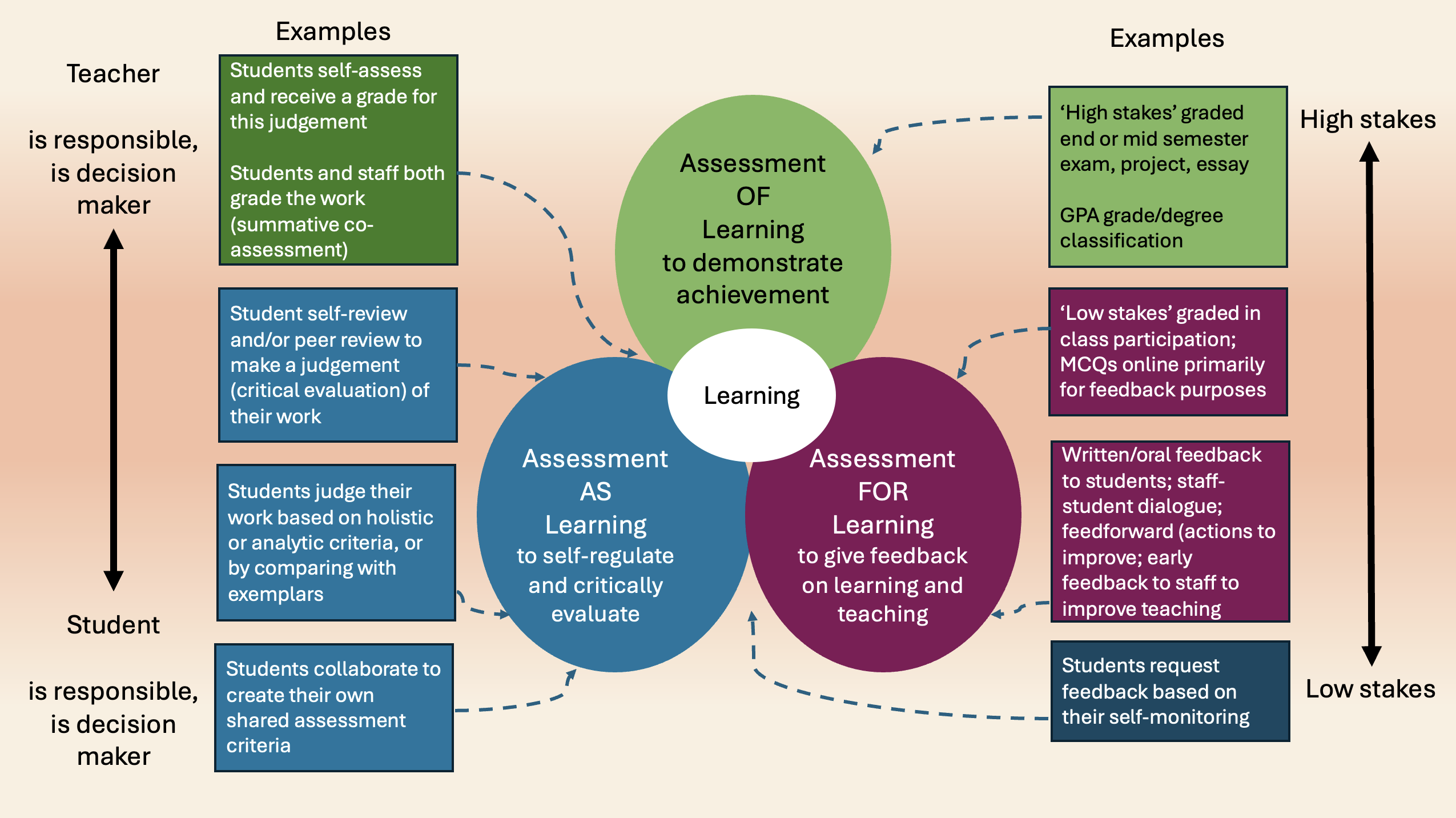Principle 5: Assessment as Learning

What is Assessment as Learning?
Assessment as learning (AaL) occurs when students are their own assessors. Students monitor their own learning, ask questions, and use a range of strategies to decide what they know and can do, and how to use assessment for new learning.
Assessment is the area of practice that has changed least over the last twenty years and remains something often considered only at the end of the design process. As a result, assessment is typically designed to focus only on ‘assessment OF learning’ (AoL) and designed with an emphasis on summative assessment. Traditional (and potentially less effective) assessment methods tend to be adopted that may not align well with, and truly demonstrate the relevant learning outcomes.
Developing approaches to assessment that foreground tasks that students can use as ‘assessment AS learning’, and that prompt ‘assessment FOR learning’ (AfL) will have a beneficial impact on student engagement and on the quality of outcomes typically achieved.
These approaches fit well with a more active approach to curriculum design promoting a range of assessment methods (see Assessment Compendium). By ensuring a balance between AaL, AfL and AoL, we can align with the key themesof inclusivity, sustainability and employability and strive towards more effective assessment practice. Please refer to the strategic approach to the Enhancement of Assessment and Feedback which details this further.

Further resources
The toolkit has several pages on the topic of assessment which may be of use to you:
Authentic Assessment
This section provides a definition of Authentic Assessment with an exploration of its benefits and ideas for implementation.
Assessment Compendium
This section provides an indicative, non-exhaustive list of some of the different assessment methods used commonly in UK higher education.
Assessment and Feedback Literacy
This section provides an overview of strategies and suggestions to enhance assessment and feedback literacy.
Feedback
This section provides a range of resources and advice to assist and support academic staff and Schools to enhance approaches to academic feedback.
Co-Creation in Assessment
This section provides an overview of the key considerations in fostering Co-creation in assessments as well as providing models of co-creation used across UK higher education institutes.
Marking and Moderation
This section provides a range of resources and advice to assist and support academic staff and Schools to enhance their approaches to marking and moderation.
Teamwork
This section provides information about the benefits, challenges, and strategies associated with the use of group work in assessment, and also about the use of BuddyCheck software for the enhancement of peer assessment.